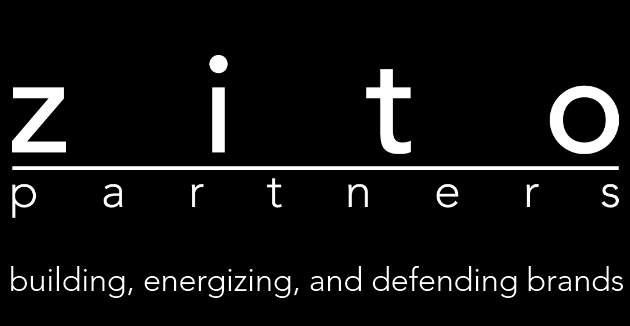View this story on-line.
Offering what it says is a different spin on location-based services, four-year-old New York startup Hotlist is pursuing more funding and plans to expand its staff to fill its new offices. Billed as a social discovery engine, Hotlist lets users see where their friends and acquaintances plan to be, rather than where they have already checked in.
“When you think about Foursquare, it’s more about declaring where you are for the sake of an incentive to get a deal,” Hotlist CEO and co-founder Chris Mirabile says. “There is no emphasis on the social aspect.”
Coordinating plans for a night out even among close-knit friends, Mirabile says, can be tedious. Text messages and photos from the venue are often shared too late for their fellow revelers to join in the fun. “The problem was being able to stay in touch with everybody and figure out what they were doing without having to text, call, or e-mail everybody every day,” he says.
From that personal frustration emerged Hotlist, which aggregates information from Facebook users who RSVP to public events. Mirabile says Hotlist collects that public information from more than 110 million people’s social plans. Hotlist only shows first names and profile photos of the expected attendees. While users of Hotlist must sign up through their Facebook accounts, information is gathered from all Facebook users who make their plans public even if they are not users of the app or in the users’ networks. “[We] aggregate all that information in bulk, anonymize it for people’s privacy, but then show you what’s expected at these different venues,” he says.
Hotlist users choose a location and then can see snippets about who plans to visit the venues on the app’s map. Users can set up their own personalized lists to follow their friends’ activities as well as events planned at favorite venues. The owners of venues can also create lists of their events for users to follow. Mirabile says, for example, hospitality company The One Group, which operates the Gansevoort hotels and the STK restaurants, is using Hotlist to increase public awareness of its properties.
All told, some 350,000 active users have signed up for Hotlist, according to Mirabile. Mobile versions of the app are available for Android devices and iPhone users.
The app has caught the eye of some investors. Mirabile says Hotlist raised $800,000 in May 2010 in a round led by Joseph Grano, CEO of Centurion Holdings in New York. Hotlist is in the midst of raising a series A round, Mirabile says, looking to close more than the amount of its initial funding—but he would not specify how much, or who is participating.
The company moved at the beginning of July from an incubator on Varick Street to its own office on Wooster Street. Mirabile says Hotlist plans to expand its staff of eight by filling three new positions in the near term plus hiring three to four new employees in the next six months. “We’re trying to stay as lean as possible,” he says.
Mirabile was already a veteran of the startup world before he graduated high school. He worked as a developer when he was 15 years old for then-startup Internetcash.com in New York. Mirabile graduated in 2006 from the New York University Leonard N. Stern School of Business, earning his bachelor’s in economics, finance, and international business, and then entered the private equity arena as an analyst. “I followed the herd into the finance world,” he says. “About three months in, I was itching to do something entrepreneurial.”
He and Hotlist co-founder COO Gianni Martire connected through a mutual friend. “[Gianni’s] college roommate was my best friend since elementary school,” Mirabile says. A mutual interest in entrepreneurship and a desire to make socializing more efficient led to the formation of Hotlist.
Mirabile says he wanted a way to keep abreast of what his friends were up to and to know what to expect in terms of the crowds at nightspots. That led to the creation of Hotlist, then known as CollegeHotList, which won the Stern School’s business plan competition in 2007. Pumped up with prospects for the new venture, Mirabile says he and Martire made a near disastrous decision. “We quit our jobs prematurely and before you knew it, the economy fell apart,” Mirabile says. “We couldn’t raise any money.”
Funds that Martire and Mirabile expected to use to get the company off the ground vanished; Hotlist was effectively shelved while Mirabile took on consulting work, though they continued to develop prototypes. “We didn’t have the funding we needed to hire the team to build this into something commercially viable,” Mirabile says.
But several key changes helped the startup survive. Getting access to Facebook Connect, Mirabile says, provided Hotlist with information it needed to make the app more robust. Hotlist also found a safe haven when it moved into the incubator at 160 Varick Street six months before receiving funding in 2010. “We had no money to keep things going; we had sunk our personal savings into it,” Mirabile says. “If we weren’t accepted in [to the incubator], we would probably not be around anymore.”
He plans to increase the depth of Hotlist by aggregating public information from more content sources such as Meetup.com and Google+ to give users glimpses of more events and their expected attendees. Mirabile also wants to include more content on such special interests as the locations where television shows such as Sex and the City and Gossip Girl have shot scenes. “We’re going to be pushing to get a lot more brands and interest groups on board,” he says.
